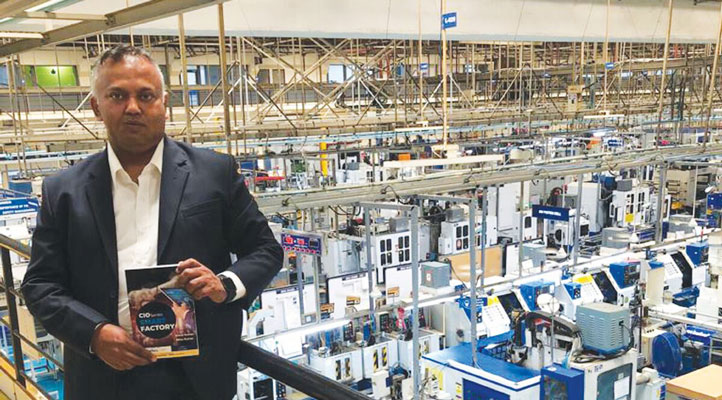From

After reading the book, readers will be able to imbibe the concepts of industry 4.0/smart factory clearly in their minds and see the difference between conventional manufacturing and the smart factory-oriented manufacturing approach.”
Milan Kumar, author of Smart Factory
What are the core ideas of your book?
The Smart factory concept is based on certain core ideas that make my book different from others:
- Human-centred yet automated manufacturing
- Open Value Chain
- Product and Service digitization across the board
- Flexible Production
- Flexible Production
These core ideas are explained in a lucid manner keeping a layman in mind; readers will be able to communicate strongly with them readily and gain meaningful insights into their importance and applicability to their professional areas.
What makes your book unique?
There have been a few books around published on the smart factory concept. But most of them were written from the European or American manufacturing industry perspective. My book
Why should people read your book?
The smart factory concept is fast catching up with the entire world. US, Germany, Singapore
Who is the target audience for your book?
The book primarily aims at the manufacturing sector due to its technical/technological
What will the readers take away from your book?
After reading the book, readers will be able to imbibe the concepts of industry 4.0/smart factory clearly in their minds and see the difference between conventional manufacturing and the smart factory-oriented manufacturing approach. The benefits accruing from this powerful concept, the technologies influencing the working and market readiness would be explored in detail by way of this book. This handbook will discuss the exact strategies, plans, requirements, benefits
How long did it take for you to write the book?
Writing a technical book is definitely more challenging than writing a book on fiction. The ideas proposed by me have to have a profound impression about the concepts of Industry 4.0 to the readers of the book. It took me around a year to research on the topics to be included in my book, write the manuscript and have it published.
Where did you get your information or ideas for your book?
I have had the pleasure of interacting with eminent personalities from the manufacturing and IT industry which enlightened me with a lot of ideas and concepts for encouraging me to write on this topic of “Smart factory”. Apart from this, it gives me profound happiness to say that my father– Mr Ashok Kumar– has been a strong pillar of support in my writing endeavour. He brought in around 35+ years of his industry experience in Supply Chain Management that helped me immensely, as any father would, in writing this book. Without him, this book would have just been a distant dream for me.


